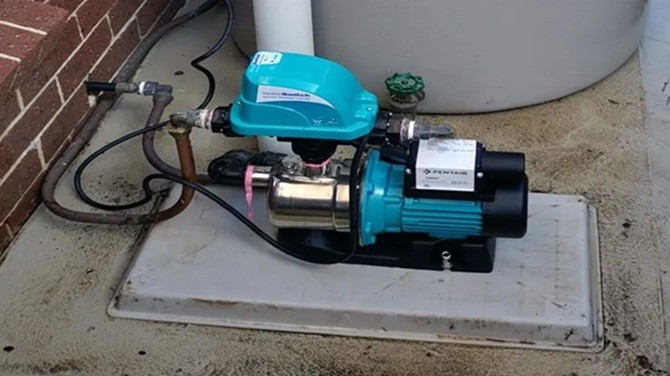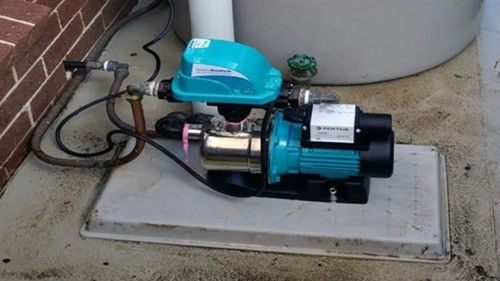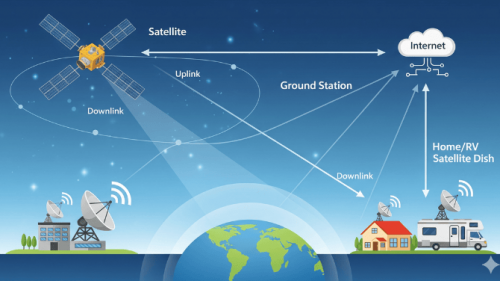Selecting the optimal water tank pumps is not necessarily a matter of selecting the shiniest available model from the shelf. It's about obtaining that ideal balance between your own requirements and what the pump can deliver. If you want to increase household water pressure, install an effective irrigation system, or drive a commercial business, the correct pump can be the difference between frustration and trouble-free success.
In this comprehensive guide, we'll take you through everything you must know about water tank pumps. From learning the fundamentals of how they operate to deciding on the various types for different applications, you're covered. We'll cover the most suitable ones for residential, irrigation, and commercial use, as well as provide you with insider information on installation, maintenance, and getting your money's worth. At the end of this, you'll have every bit of information you need to make an educated decision that'll keep your water running hard for years to come.
Understanding Water Tank Pumps: The Basics
What Is a Water Tank Pump and How Does It Work?
Fundamentally, a water tank pump is basically the heart of your water system. It generates the pressure to push water from your storage tank to where you need it – be it your kitchen faucet, garden hose, or industrial machinery. The pump achieves this by employing an impeller (a disc with vanes) that spins quickly, generating centrifugal pressure that forces water through the system.
All the latest pumps include a pressure controller that keeps an eye on your water consumption. When you turn on a tap, the controller senses the pressure fall and turns the pump on automatically.
Types of Water Tank Pumps on the Market
The market for the pump has a number of different models, each of which has its own advantages. Jet pumps are common in homes, providing smooth operation with a moderate price tag. They're ideal for pulling water from shallow tanks or wells. Submersible pumps, however, place right inside your water tank, which means that they're quiet as a whisper and extremely efficient – ideal if your tank is located close to living areas.
Important Features to Consider while Purchasing a Water Tank Pumps
When you buy a pump, there are a few factors to look out for. Flow rate, in litres per minute, indicates how much water the pump will move. 40-60 litres per minute should be enough for most homes, but irrigation systems may require much more. Pressure rating, in metres of head or kPa, shows how strongly the pump can push water – important if pumping upwards or to higher floors.
Best Water Tank Pumps for Household Use
- Top Pressure Pumps for Domestic Water Supply: For most houses in Australia, a good quality pressure pump converts tank water into a consistent domestic supply. The DAB Jet inox series is excellent with its stainless-steel body and performance consistency, providing steady pressure even when several taps are opened. Such pumps carry out the workload of modern homes excellently, from morning showers to evening watering the garden.
- Silent Operation Pumps for Domestic Applications: With people living in close proximity to neighbours, pump noise is a very real factor. Variable speed pumps such as the DAB Esybox excel in this regard, slowing down or speeding up automatically as required. When you're topping up a glass of water, they hardly make a sound. Filling the bath? They'll smoothly power up without the stop-and-start judder of older pumps.
What Size Water Tank Pumps Do I Need for My Home?
Sizing your pump correctly avoids both infuriating low pressure and costly over-specification. Begin by listing your water outlets – taps, showers, toilets, and appliances. An average three-bedroom house with two bathrooms requires a pump supplying 50-70 litres per minute at about 300-350 kPa. This accommodates simultaneous use without pressure drops that leave one stranded mid-shampoo.
Maintenance and Troubleshooting
Quality water tank pumps with proper maintenance typically last 10-15 years, though we've seen well-cared-for units soldier on for two decades or more. Usage patterns significantly impact lifespan – a pump cycling constantly wears faster than one used intermittently. Environmental factors matter too. Coastal installations face salt corrosion, while pumps in dusty areas suffer from abrasive wear.
- Essential Maintenance Tips to Extend Pump Life: Regular inspection prevents small issues becoming major failures. Inspect for leaks every month, tightening connections before drips turn into floods. Listen for strange noises – grinding, squealing, hammering noises signal something brewing. Respond to strange noises immediately instead of waiting for them to go away.
Water Tank Pumps Price Ranges: What to Expect
Beginner residential pumps range from $400-600, delivering basic operations for simple use. These fit small tanks and small homes with simple needs. Mid-range ($800-1500) deliver improved construction, more efficiency, and features such as variable speed control. This mid-point meets most residential needs without pricing out budgets.
Conclusion
Selecting the proper water tank pumps turns your water system from a headache to a trusted resource. We've navigated the entire range of possibilities, from basic residential pumps to sophisticated commercial setups. The takeaway? No single answer fits all – success is achieved by aligning pump capabilities with your needs.
No matter whether you are increasing household pressure, watering large gardens, or driving commercial applications, the fundamentals are the same. Know your requirements, select quality equipment, install it correctly, and keep it serviced. Stick to these rules, and your pump will provide years of loyal service. Ignore these recommendations, and you'll become part of the ranks of disappointed owners faced with constant issues and premature breakdowns.










